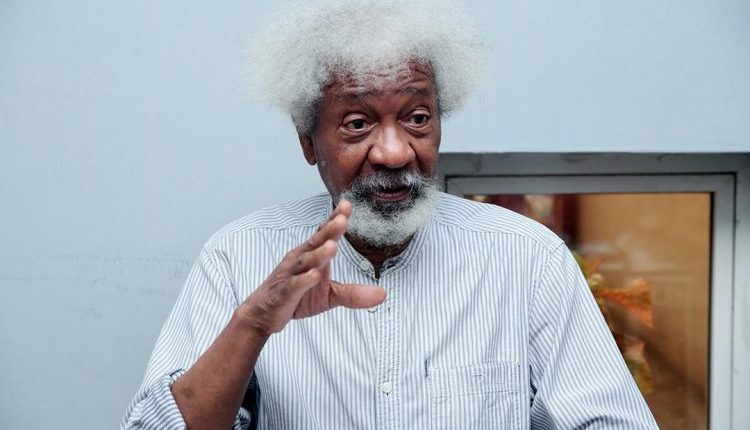University of Abuja Establishes Centre for Wole Soyinka Studies
Appoints Dr. Ojoniyi Olabode as Acting Director
University of Abuja Establishes Centre for Wole Soyinka Studies
Jerry Adesewo
As Nigeria prepares to celebrate the 90th birthday of its literary icon, Professor Wole Soyinka, the University of Abuja has announced the establishment of the Centre for Wole Soyinka Studies. This new initiative aims to honour the legacy of the 1986 Nobel Prize winner for Literature and to promote the study of his works and contributions to global literature, theatre, and human rights.
Professor Wole Soyinka, renowned for his profound and transformative contributions to literature, drama, and political activism, has long been a source of inspiration both within and outside Nigeria. The establishment of this centre not only pays tribute to his achievements but also seeks to cultivate a deeper understanding and appreciation of his work among scholars, students, and the general public.
The University of Abuja’s Centre for Wole Soyinka Studies will serve as a hub for academic research, cultural exchange, and intellectual discourse centred on Soyinka’s extensive body of work. The centre will house an expansive archive of Soyinka’s writings, including his plays, essays, and poetry, and will host seminars, workshops, and conferences dedicated to the exploration of his themes and ideas. Additionally, it will facilitate interdisciplinary research collaborations and foster a vibrant community of scholars dedicated to Soyinka’s legacy.
Read Also: Celebrating Wole Soyinka@90 Celebration: Ebroihimie Road, A Museum of Memory set July Premiere
The establishment of the Centre for Wole Soyinka Studies at the University of Abuja is part of a broader global trend of academic institutions recognising the significance of Soyinka’s work. Numerous universities around the world have dedicated resources to the study of Wole Soyinka. For instance, Harvard University in the United States offers courses on African literature that include comprehensive studies of Soyinka’s works. Similarly, the University of Leeds in the United Kingdom has integrated Soyinka’s plays and literary contributions into its curriculum on postcolonial studies.

In Africa, the University of Lagos and Obafemi Awolowo University in Nigeria have established dedicated courses and research projects focusing on Soyinka’s literature and his impact on African theatre and political thought. These institutions, along with others, have played crucial roles in advancing the study and appreciation of Wole Soyinka’s contributions to literature and social justice.
To pilot the affairs of the Centre, the University of Abuja has appointed Dr. Ojoniyi Olabode as the Acting Director of the newly established Centre for Wole Soyinka Studies. Dr. Olabode brings a wealth of experience and academic expertise to this role.
Dr. Ojoniyi Olabode teaches in the Department of Theatre Arts at the University of Abuja. He holds a B.A (Hons) in Performing Arts, an M.A. in Dramatic Literature from the University of Lagos, and a PhD in Performing Arts from the University of Ilorin. He has published more than 40 articles in local and international journals and has authored about 14 plays, including “For the Love of Sisyphus,” “A Visit to a Graveyard,” “Death in a Masque,” and “Our Wife Has Gone Mad.” He is an accomplished actor, director, and a 2015 Postdoctoral Fellow of the American Council of Learned Societies. Additionally, he is a national award-winning playwright.
Responding to the news of his appointment, Dr. Ojoniyi expressed profound gratitude to the Vice Chancellor, Professor Abdul-Rasheed Na’Allah, and the University of Abuja’s management for entrusting him with this significant responsibility. “I am grateful to the Vice Chancellor, Professor Abdul-Rasheed Na’Allah, and the University of Abuja’s management for finding me worthy of this great assignment. I will spare nothing to ensure that the primary goal of this initiative is achieved, beyond and above their expectations.”
Dr. Ojoniyi also revealed that his first task as Acting Director would be to seek an audience with Professor Wole Soyinka, accompanied by the university management, to officially notify him of this development, share his vision, and seek his blessing.

The Centre for Wole Soyinka Studies aims to become a leading institution for the study of African literature and culture. It seeks to inspire a new generation of scholars and writers to engage with Soyinka’s work and to contribute to the ongoing dialogue about his influence on global literature and social thought.
One of the centre’s primary goals is to promote the study of Soyinka’s work within the context of broader African and global literary traditions. By fostering interdisciplinary research and encouraging collaboration between scholars from different fields, the centre hopes to uncover new insights into Soyinka’s writings and their relevance to contemporary issues.
Additionally, the centre plans to organise public lectures, cultural events, and educational outreach programmes to engage the wider community and promote a deeper appreciation of Wole Soyinka’s contributions. These initiatives will provide opportunities for students, educators, and members of the public to interact with Soyinka’s work and to explore its enduring significance.
The University of Abuja’s establishment of the Centre for Wole Soyinka Studies marks a significant milestone in the recognition and celebration of one of Africa’s most influential literary figures. Under the leadership of Dr. Ojoniyi Olabode, the centre is poised to become a beacon for academic excellence and cultural enrichment, fostering a deeper understanding of Wole Soyinka’s legacy and its impact on literature, theatre, and human rights.
As the global community prepares to celebrate Soyinka’s 90th birthday, the Centre for Wole Soyinka Studies stands as a testament to his enduring influence and a commitment to preserving and promoting his contributions to the world. Through its dedicated programmes and initiatives, the centre will ensure that Wole Soyinka’s work continues to inspire and educate future generations.



